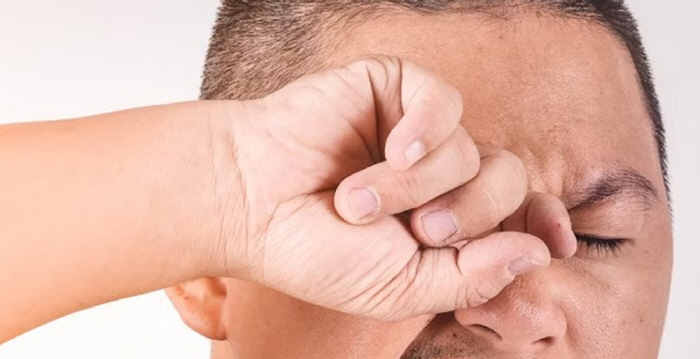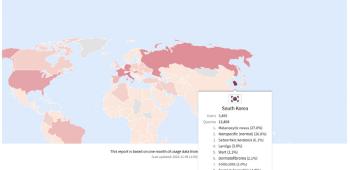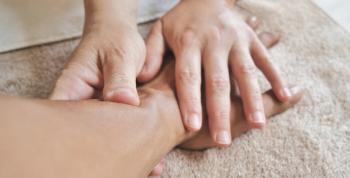Pollen and Fine Dust Spring, Allergic Conjunctivitis Warning
May 02, 2025
|
It is easy to leave these symptoms as fatigue or temporary irritation, but if repeated, it may be 'allergic conjunctivitis' caused by an overreaction of the immune system, so caution is needed.
The outermost conjunctiva of the eye tissue serves to protect the eyeball from external stimuli. However, they are easily exposed to allergens such as pollen, house dust, dandruff of animals, and fine dust, and react sensitively. When antigens stimulate the conjunctiva, immune cells such as mast cells and eosinophils are activated, and inflammatory substances such as histamine are secreted, and symptoms such as eye itchiness, congestion, and swelling appear.
Professor Baek Jin-wook of the Department of Ophthalmology at the Catholic University of Korea's Incheon St. Mary's Hospital emphasized that "the conjunctiva is not a hard protective film, but a very sensitive immune sensor. If symptoms such as eye itchiness, congestion, tears, and foreign body sensation are repeated even with a small stimulus, it should never be taken lightly."
Seasonal allergic conjunctivitis, which appears frequently at the same time these days, mainly occurs from April to June. Typical causes include pollen, fine dust, and yellow dust. On the other hand, perennial allergic conjunctivitis continues to show symptoms throughout the four seasons due to indoor environmental factors such as house dust mites, fungi, dandruff and hair of animals. About 80% of them tend to worsen their symptoms in certain seasons. In addition to this, the presence of atopic dermatitis may be accompanied by 'atopic keratoconjunctivitis'. Beyond simple allergic reactions, this can worsen into serious ophthalmic diseases such as cataracts, conical cornea (coronal protrusion), and retinal detachment, requiring detailed treatment if symptoms are not controlled.
Professor Jinwook Paik said, "If you have itchy eyes and bloodshot symptoms repeatedly, you should look back on your living environment if you don't know why."You should check if the symptoms continue even after the effects of the season, contact with pets, and cleaning up your bedding."."
Allergic conjunctivitis diagnosis begins with listening to a medical history to see if there is an allergic history in the family, when and how symptoms appear. After that, through a Slit Lamp microscope test, the conjunctiva and cornea can be enlarged to check for allergic signs such as conjunctival edema, congestion, and papillary hypertrophy. Systemic allergy tests, conjunctival observation tests, conjunctival induction tests, and IgE (Immunoglobulin E) antibody tests may be performed as needed.
Antihistamines are most commonly used for treatment. It is effective in quickly relieving symptoms such as itching, congestion, and swelling by blocking the action of histamine. If symptoms are repeated or long-term management is required, a Mast Cell Stabilizer is used together. It is effective in preventing the occurrence of symptoms by suppressing histamine secretion itself. Recently, drugs that combine the effects of antihistamines and mast cell stabilizers have been developed and widely used.
Steroid eye drops may be used for a short period of time in patients with severe symptoms or acute inflammatory reactions. For minor symptoms, a vasoconstrictor is used to temporarily relieve congestion and conjunctival edema. However, when the vascular water festival is discontinued, symptoms may worsen, so it must follow the instructions of a specialist.
Reducing allergen contact is of utmost importance as a preventive measure. It is recommended to wear glasses or sunglasses when you go out during the pollen season, and remove antigens around your eyes cleanly by washing your face and taking a shower after returning home. Bedding and curtains should be washed periodically. Keep humidity low, short ventilation and the use of air purifiers are also helpful.
Folk remedies for washing the eyes with salt water should be avoided as they can cause conjunctival damage, and the act of rubbing the eyes repeatedly can worsen inflammation, so be careful. In addition, if you are taking antihistamines, it is advisable to avoid drinking because there is a risk of side effects.
Professor Baek Jin-wook advised "The eyes are always exposed to the external environment, so they react sensitively to environmental changes." Allergic conjunctivitis is a disease that requires constant management, and if there are symptoms, it is important to prevent deterioration of quality of life through accurate diagnosis and treatment."
|
This article was translated by Naver AI translator.















